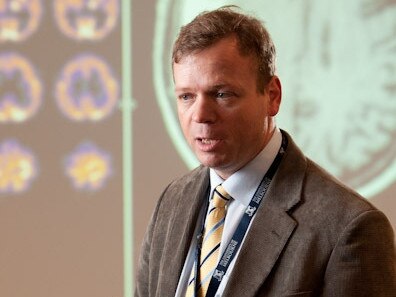Melbourne researchers seek $1m to test drug for brain, spinal cord injuries
Melbourne medical researchers want a $1 million election pledge to fast-track human trials for a drug to treat brain and spinal cord injuries.
News
Don't miss out on the headlines from News . Followed categories will be added to My News.
A groundbreaking Melbourne medical research team is pleading for a $1 million election commitment to fast-track human trials of a drug to treat brain and spinal cord injuries.
The development of Decorin, which may help some wheelchair-bound patients walk again and aid the recovery of stroke sufferers, has been financed almost solely by the millions of dollars raised by Lions Club members across Australia for almost 20 years, and through StepAhead, a charity formed by Victorian couple George and Barbara Owen to find a cure for spinal cord injury.
JOSH GIBSON’S GIRLFRIEND SUFFERS SPINAL INJURY
ROBOTIC LEGS HELP PARALYSED MAN ‘WALK’ AGAIN
Researchers are asking for $1 million to establish a neurotrauma research centre at Monash University to move the drug to a clinical development phase.

Decorin, developed by Melbourne researchers Stephen and Jeanette Davies, has earned worldwide praise for its potential to protect or replace brain and spinal cord cells. Recent studies by the Davies team have shown that infusing Decorin to fluid surrounding the brain and spinal cord could allow some to walk again.
Professor Terence O’Brien, the director of neurology at Alfred Health, has written to Health Minister Jill Hennessy and Opposition health spokeswoman Mary Wooldridge asking for the commitment.
He said there was strong humanitarian and economic grounds to fund the program, with taxpayers wearing an annual burden of $15 billion from spinal cord and traumatic brain injuries and strokes.
StepAhead chairman Tony Benbow said research funding had been scarce but the commitment of more than 1200 Lions Clubs had been crucial.


